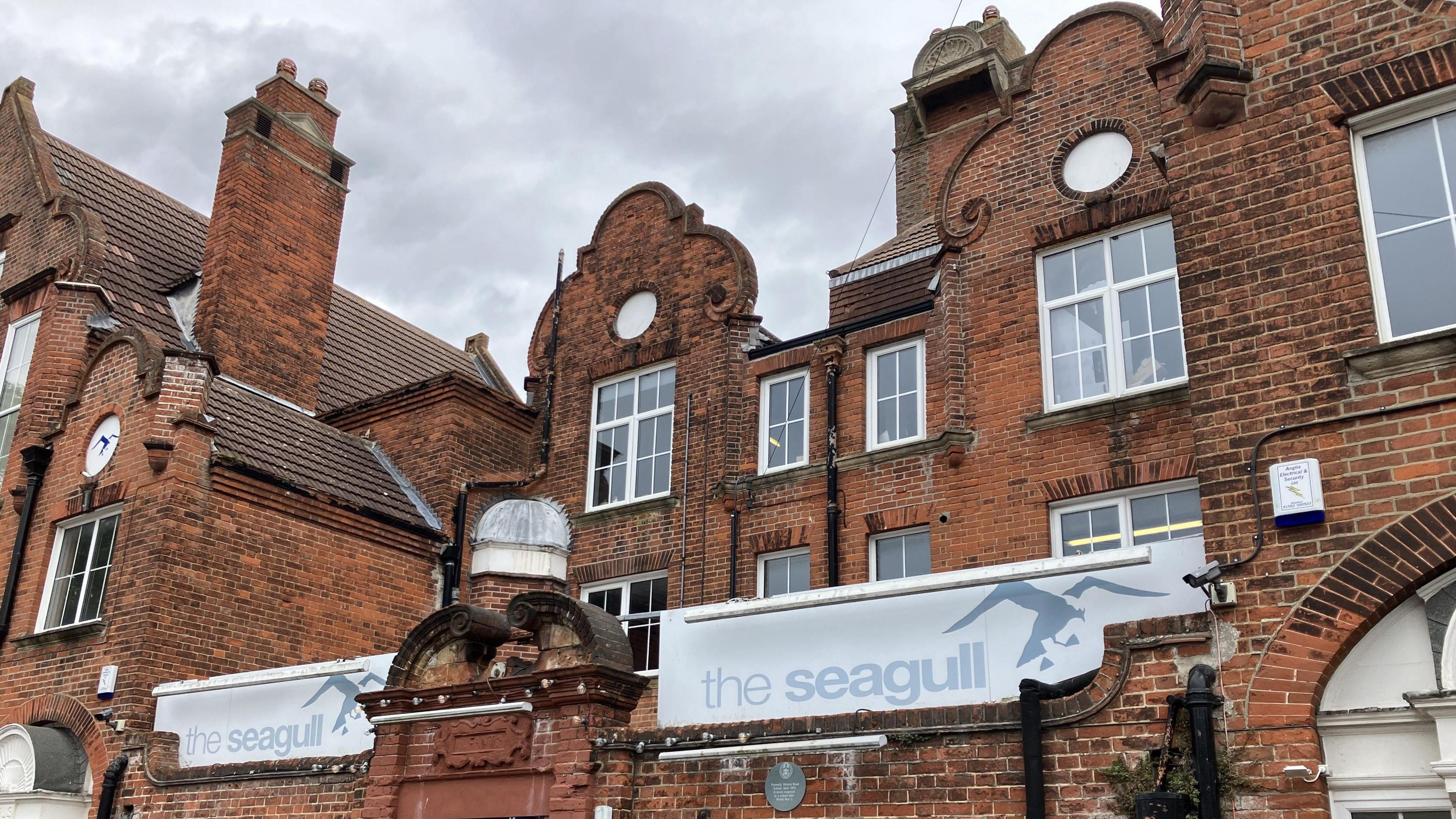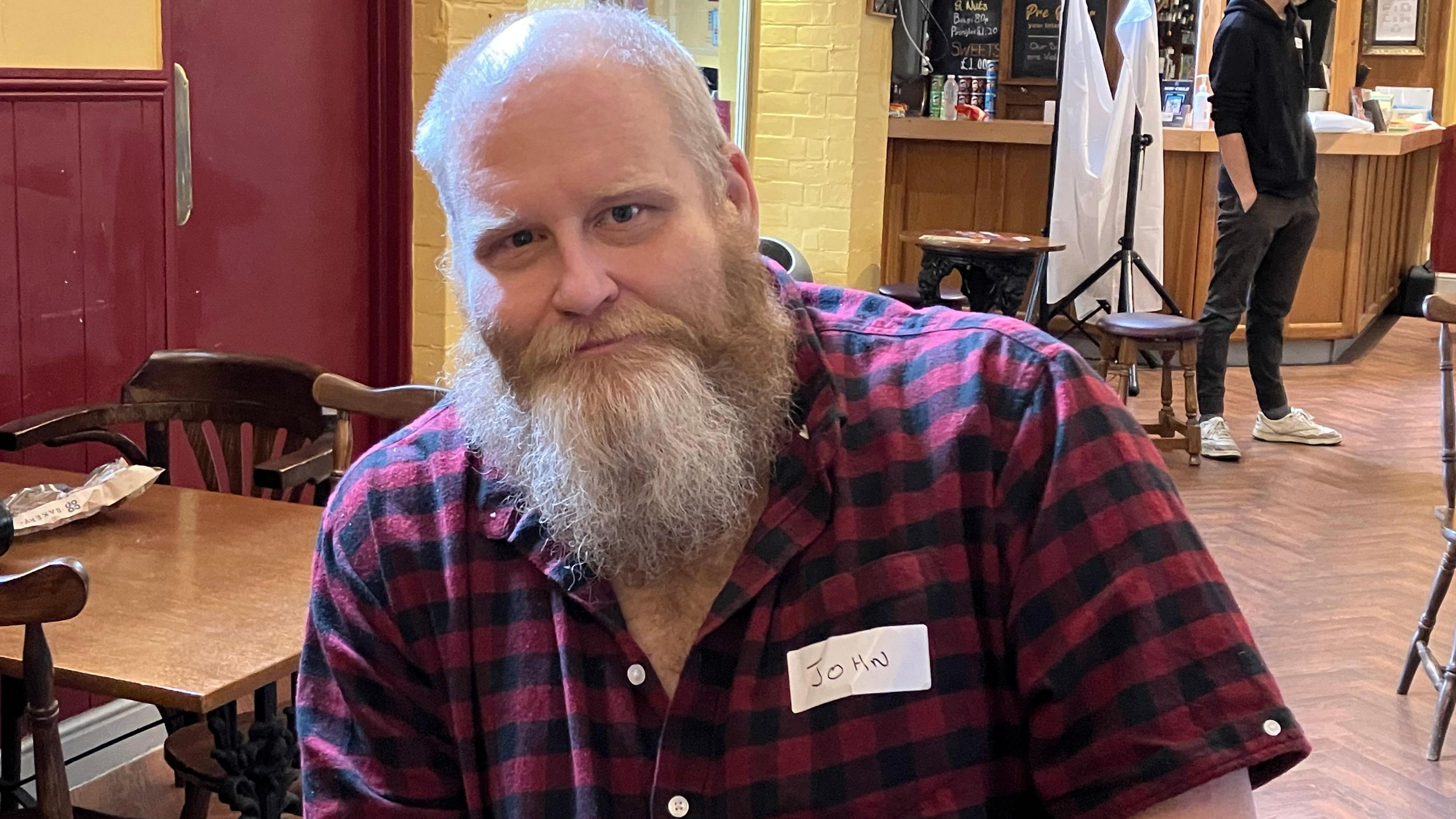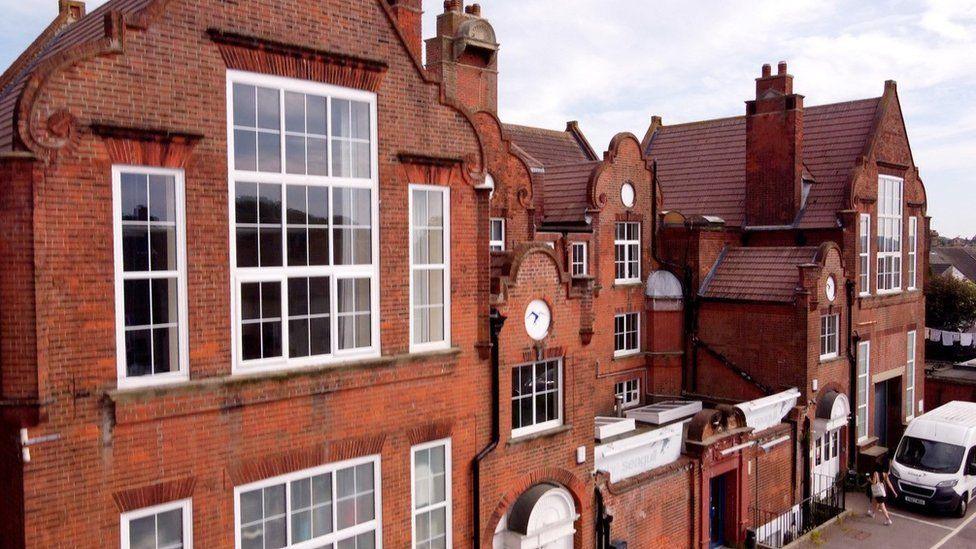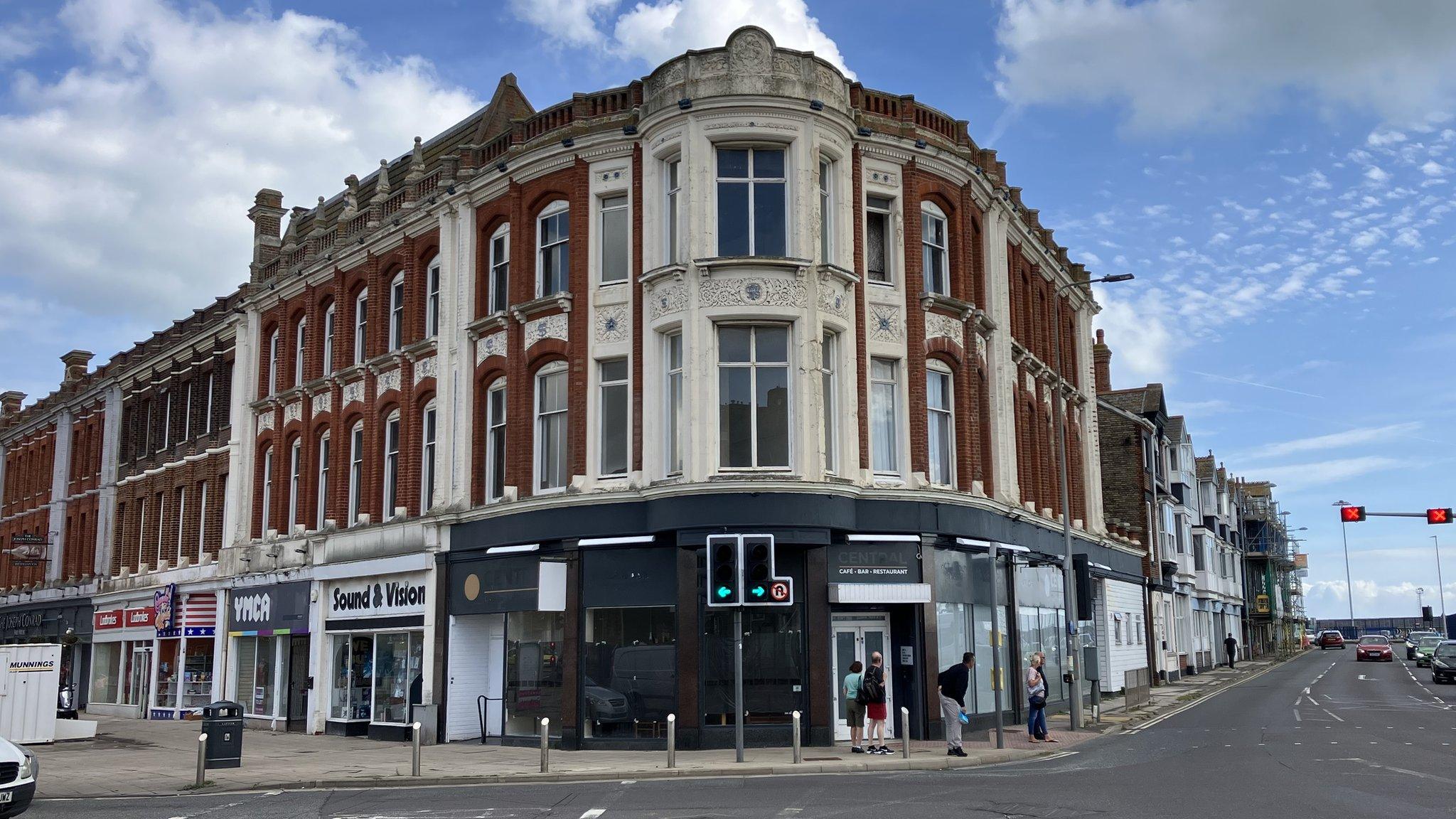Documentary premiere tells theatre site's history

The documentary about The Seagull theatre site in Lowestoft traces the life of the people and building since 1895
- Published
A documentary about a theatre building's history from its beginning as a Victorian school to the site's present use as a community hub has premiered at the venue.
The film about The Seagull in Lowestoft, Suffolk, highlights the life of the people who have used the building since 1895 to the present day.
John Hales, 54, a writer and director, said it was an honour to show The School That Grew Wings to an audience of more than 120 guests at the theatre.
Mr Hales said: "The response to the documentary has been so positive. People laughed, they cried at times and overall most have described the film as being really inspiring."

Mr Hales said the building had changed many lives over the years
He added: "The real revelation for me making this documentary has been to realise how much a place or a connection can mean to people and change their lives."
The documentary received grants from the National Lottery Heritage fund and the Suffolk Community Foundation and is now available to watch online via a link available on The Seagull, external theatre website.
The building opened in 1895 as a junior day school called The Morton Road School and remained this way until the end of World War Two.
It was then used as an annex to Lowestoft College for coachbuilding and engineering courses before it was converted into a theatre in 1967.
In 2006 funding was withdrawn and the building was boarded up. This prompted the establishment of The Save our Seagull group to save the theatre and patrons, including Dame Judi Dench, pledged to support the campaign.
The theatre was reopened in February 2009, and it said it had "re-established itself as an important arts venue, offering a range of shows, classes and workshops".
It now plays host to a regular stream of local talent, regional and national touring theatre companies and a selection of community events.
The theatre is mostly run by volunteers, supported by three permanent staff members.
Get in touch
Do you have a story suggestion for Suffolk?
Follow Suffolk news on BBC Sounds, Facebook, external, Instagram, external and X, external.
Related topics
- Published20 May 2024

- Published23 September 2023
